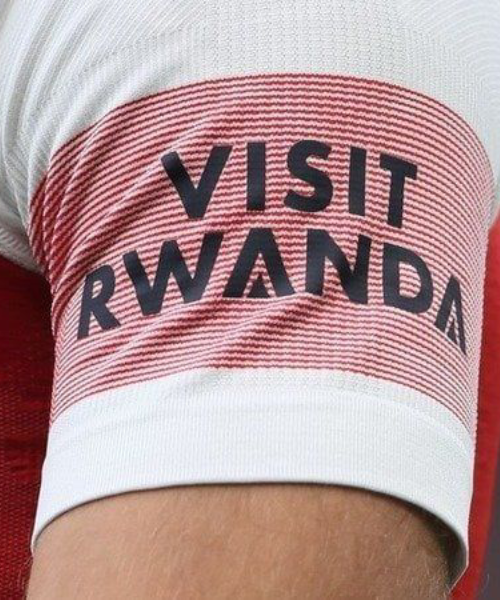19th African Conference of Commandants in Kigali calls for a continental shift to digital literacy, indigenous innovation, and unified training to ensure future security.
KIGALI, Rwanda — The future of Africa’s security hinges on a critical battleground that isn’t fought with bullets, but with bandwidth and bytes. Military leaders from across the continent have gathered in Kigali, Rwanda, for the 19th African Conference of Commandants (ACoC) with a singular, urgent focus: bridging the widening digital divide to counter sophisticated, evolving security threats.
The consensus at the conference is stark: traditional military training methods are no longer sufficient. African nations are confronting a multifaceted security landscape, including persistent terrorism, complex cyber warfare, transnational crime rings, and escalating climate-related insecurity. To meet these challenges, the continent’s defence leaders argue, requires a new generation of officers who are as adept with data and digital systems as they are with field tactics.
In a powerful keynote address, Minister Marizamunda framed the challenge in existential terms.
“We cannot build the armies of tomorrow with the tools of yesterday,” he declared, calling for military institutions to transform from “traditional training centers into hubs of knowledge, innovation, and technological adaptation.”
Minister Marizamunda emphasized that the digital era has fundamentally changed the nature of defence, creating threats that traditional battlefield doctrines cannot address alone.
“Addressing these requires a generation of officers who are not only tactically capable but also digitally literate, ethically grounded, and strategically agile,” he stated. “This is the essence of professional military education in the 21st century.”
The Drivers: New Threats and New Tools
The push for modernization is fueled by both necessity and opportunity. On one hand, technologically advanced nations and non-state actors are leveraging digital tools for warfare and disruption. On the other, some African militaries are already seeing the benefits of integration.
In countries like Kenya, Nigeria, and South Africa, advanced technologies such as virtual reality (VR), laser-based simulation systems, and complex computer-generated scenarios are being integrated into training programs. These digital tools offer cost-effective, efficient, and repeatable training alternatives that enhance combat readiness.
South Africa has even established the continent’s first military artificial intelligence (AI) hub, signaling a growing focus on harnessing next-generation technology. Furthermore, standardizing these digital innovations across the continent is seen as essential for promoting interoperability and fostering a common security outlook among African defence institutions.
The Hurdles: A Persistent Digital Gap
Despite this progress, the path to a digitally integrated military force is fraught with significant and persistent challenges.
“The digital divide that separates some of our military institutions must be closed,” Minister Marizamunda urged. “And it must be closed by us, through cooperation, shared learning, and continuous innovation.”
The primary hurdles identified at the conference include:
- Unequal Access: A severe disparity in access to reliable internet and necessary digital equipment plagues many institutions.
- Infrastructure Limitations: Robust technological infrastructure remains a challenge, exacerbated by practical issues like recent damage to undersea cables, which affects connectivity for entire regions.
- The Digital Literacy Gap: There is a significant shortage of digital skills among personnel. Conference materials noted that some students arrive at military colleges requiring basic computer skills training before they can even begin their primary education.
- Outdated Curricula: Many academic and training institutions are still using obsolete curricula that fail to align with the demands of the modern digital landscape, creating a critical skills mismatch.

The Strategy: A Unified Continental Approach
The 19th ACoC is designed to move beyond identifying problems to creating a unified, actionable strategy. The leaders are emphasizing several key avenues for progress.
Cooperation and Collaboration is at the heart of the ACoC. The forum, first held in 2007, allows Africa’s Command and Staff Colleges to exchange best practices, align curricula, and build a unified front. Minister Marizamunda commended the platform for “strengthening Africa’s collective security architecture,” helping to move “from isolated training systems to a unified continental approach rooted in excellence and shared vision.”
Other key strategies include:
- Investing in Indigenous Innovation: A strong push is being made for investing in and creating Africa’s own military technology, rather than solely being consumers of foreign tech.
- Adopting Hybrid Learning Models: To overcome infrastructure gaps, institutions are exploring hybrid models that combine online platforms with distance learning solutions, radio broadcasts, and locally-stored content to ensure educational continuity.
- Public-Private Partnerships: Leaders are advocating for collaboration with the continent’s burgeoning private tech sector and innovation hubs to provide practical, market-relevant digital skills and help update training programs.
- Digital Literacy as a Core Competency: The ultimate goal is to integrate digital literacy as a fundamental, non-negotiable skill set into all military education programs, from basic training to the most senior command levels.
As the conference prepared to transition its chairmanship from Rwanda’s RDF Command and Staff College to the Tanzania Command and Staff College, Minister Marizamunda urged participants to maintain momentum.
“Let this handover not mark an end, but a continuation of our shared journey toward an Africa that is self-reliant in defence, united in purpose, and strong in partnership,” he said.
The conference is expected to conclude with actionable recommendations on integrating digital tools and simulation technologies, built on the shared understanding that the continent’s stability depends on it.
“Our future security depends on the minds we train today,” Minister Marizamunda concluded. “If we invest in knowledge, discipline, and technology, Africa will be ready for any challenge — together.”











